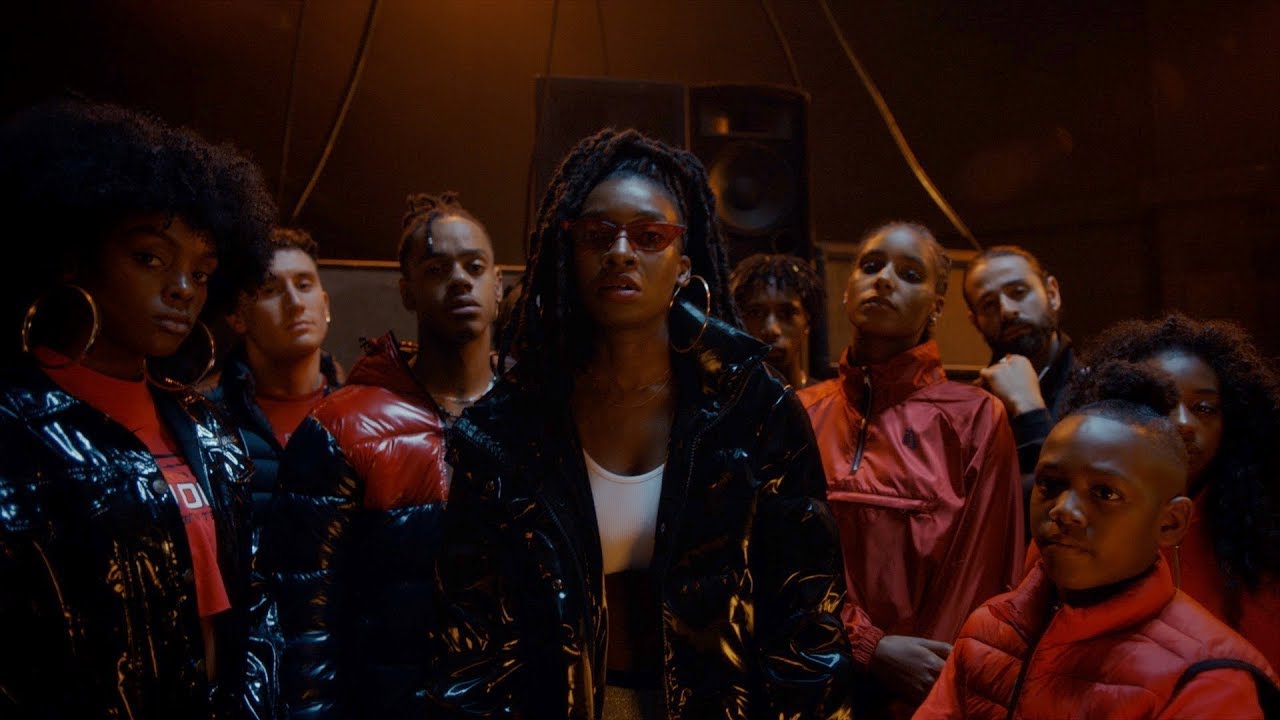Our twenties are an aching tug between adolescence and adulthood; a hard-to-define era with a malaise that’s difficult to pinpoint, yet well-captured in music and art. It’s both cavernous and oppressive, as we reach for what is us, or us in motion. Is this a personality trait, or a passing fancy? A staunch ideal or a feeling in transition? Little Simz’ third studio album, Grey Area, sees her swing confidently through the duality of youth to harness the harshest of her vulnerable, raw moments, and the best savage, wisdom-weaponry, giving each reflection on herself pride and place on this record.
The London MC’s own threshold-crossing has been creatively rewarding, but challenging. In her nine-year career, the 24-year-old – real name Simbi Ajikawo – has remained a fervently independent artist, choosing to release multiple EPs and albums on her own Age 101 imprint. Her 2015 debut A Curious Tale Of Trials + Persons saw her lauded by Kendrick Lamar as "the illest" of the moment. 2016’s Stillness In Wonderland, her gloriously experimental second album, wasn’t commercially successful but still received hot critical praise for its lyrical candour, imaginative concept, and enthusiastic melding of jazz, grime, R&B and soul. Thematically, Simz struggled with self-worth and being. She has been compared to Lauryn Hill and joined the iconoclast on tour, guested with the Gorillaz, and received praise from grime godfather Dizzee Rascal and more. Despite all this, she’s flown almost criminally under the radar.
Simz has been steadily innovating across her already sprawling oeuvre in ways that surpass some of her more critically-acclaimed and mainstream-applauded peers – repping London talent before big brands co-opted the entire city, playing with pulsing basslines and strings prior to the contemporary jazz boom, experimenting across the mediums of art and music with a graphic novel, festival curating, and art exhibition. It’s an auteur-like way of working that’s been celebrated in similarly visionary peers like Gaika and Kojey Radical. Maybe now, with Grey Area, the mainstream consciousness has finally caught up with Simz and her brain-pummelling nuances.
Grey Area is a tumultuous testament to the identity-searching we have to do post-teenagerdom – Simz has described how 2017 was a year of transition, turning 23 was a period of time that she felt ill-prepared for, with obstacles that were impossible to foresee. The album found its life as she rounded off an international tour, when alone in an Amsterdam hotel room, she grappled with hard and dark questions about her DIY trajectory, fame, family, and what lay before her. It was here she decided to shed her more outward, conceptual perspective to bring it all back home, and work with a producer she knew from childhood in north London, Inflo, to do so. Far from letting the darkness swallow her whole, Simz emerges assured – vulnerability is power. "Shit really got me down, but I’m gonna succeed in life," she affirms on ‘Pressure’.
‘Offence’, the first single released from the album and her opener, is a ravaging statement of intent, blistering with backed up bravado over chunky bass and sweeping flutes. Simz wouldn’t be Simz without caustic humour and full-bodied one-liners either, playfully aligning herself with the greats: "I’m Jay-Z on a bad day, Shakespeare on my worst days". ‘Boss’ rides this menacing wave, with cold, striking verses that warn a guy to stay the fuck away while she works. ‘Venom’ is the stand-out – its erratic John Carpenter strings and spindly cymbals back up a seething vocal. "He don’t like pussy in power," she snarls through the layers of vocals, overcoming weak men in her way, fearlessly emboldening herself.
Grey Area is as ambitious in its sonics as it is in its themes and personal excavation; helped by producer Inflo’s hard as nails production and access to a full band, it brings together her past enthusiasm for genre-hopping to sweep fluidly through neo-soul, grinding guitar lines, throbbing strings and lush jazz nods for her most cohesive sound yet. ‘101FM’ has a totally infectious, Gameboy-like melody. This tune also highlights the album’s rich and agile storytelling, picking nostalgic memories of Playstation games and circling blocks of flats to illustrate her narrative, with ‘Selfish’ featuring a lush hook by singer Cleo Sol keeping stories of her growth and maturation compelling. ‘Sherbert Sunset’ lays bare a broken relationship and the difficult emotions that brought, while ‘Pressure’ is Simz at her most raw when discussing mental health and insecurities.
It’s a cathartic album, most evident on the stinging, soul-baring ‘Therapy’, where she gets honest about her struggles – "sometimes we don’t see the fuckery, til we’re out of it," she deduces, admitting that hard times mean she’s considered dipping out, disgusted by a society of "frauds and counterfeits". She won’t though – dip out that is – and she looks to a future with a daughter who’ll ascend to take the kingdom she’s made for her, a king regardless of gender. ‘Flowers’, with a Michael Kiwanuka guest feature, is equal parts hopeful and fearful of the future, stepping out of herself for one singular moment on the record to survey the price of fame for idols in the 27 club – Winehouse, Hendrix – for a totally stunning, tender closer. Her pace and fervour sees her straight through.
"Same me, new level," Little Simz matter-of-factly tweeted recently, and that couldn’t be more true with Grey Area. She’s at her peak, insecurities and assurances weighted on her raised fists, saying everything with her chest.



